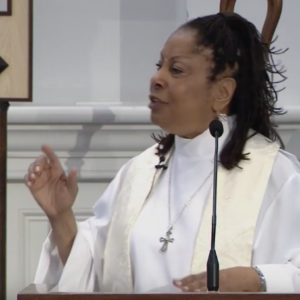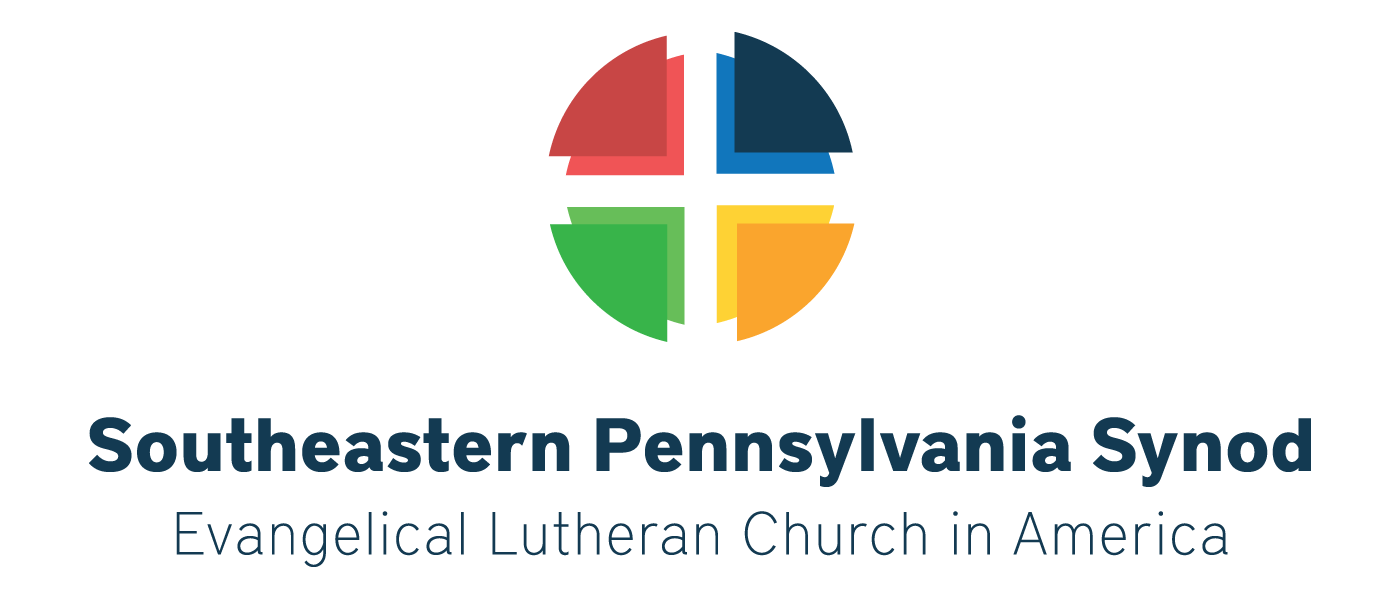May 23, 2019 in Assembly, Communications
‘Are We Willing to be Transformed?’

The beloved community is like this: ‘God takes it very personally how we treat one another,” the Rev. Dr. Wyvetta Bullock said in her sermon at the Assembly’s Saturday Eucharist. “The compassion we express to others is our expression of our love for God.”
As humans we struggle with love that seeks nothing in return. This holy love is “relentless. It’s prodigal. It’s extravagant. It’s wasteful. In fact, it’s scandalous,” she said. “It’s for everyone, everywhere, all the time. Without price. It’s impartial and its impractical.”
But this is not what we see on the news or experience in our neighborhoods. “The fragmentation in our communities and the division in our nation give witness to the brokenness in our lives. More and more people see the neighbor as ‘the other’ rather than someone to love.”
[ Watch video of Dr. Bullock’s Sermon ]
Dr. Bullock is assistant to the presiding bishop and executive for administration of the ELCA churchwide organization, and also serves Bethel Lutheran Church on the West Side of Chicago – an area with a half-million residents for whom “the economy is not humming” as it is elsewhere in the US.
“Bethel seeks to build beloved community,” she said. “In order to do that, we have to change our expectations and approaches to ministry.”
Bethel has partnered with community agencies to start a Tuesday night service “to welcome to worship people who are struggling with life’s challenges, openly.” There people who might be returning from prison or rehab, or just trying to make ends meet, can get a meal and referrals for jobs or housing. Participants request sermon topics, such as How do I hold my life together? or How does God heal a broken heart?
“I believe that If Jesus came to Bethel, he would come to the Tuesday night service,” Bullock said. “It’s real. It’s raw. Seeing Jesus in everyone at that service stretches us to understand that when we say we love God we love people who are openly broken and hurting.”
Bullock has empathy for those who consider themselves outsiders. She was raised in a community where segregation was enforced and even though her family lived next door to white families, they did not live as neighbors.
“For me the beloved community was limited,” she said. “Even though the white people around me claimed Christianity, I could not locate them in the beloved community because they did not love me.
“The good news is that God loves all of us. Amen? God loved us first. And God has placed all of us in the beloved community in Christ.” Which means that we are called to love more than those who are neighborly. “Jesus said, ‘Love your enemies, too.’”
Sometimes it is easier for people to keep enemies than to be transformed by love. She described how her family parked their car in a space in front of a white neighbor’s vacant lot – until a large log appeared in that spot. (“We got the message,” she said.) So Bullock’s father set to collect tools and supplies and constructed a new parking space on his own property. When he finished, he gathered up his tools and took them to repair the neighbor’s parking space, too.
“I was furious” with him, she recalled. Silently she wondered, Does he know that they don’t like us?
“That night while we sat at dinner, there was a knock at the door. It was our neighbor. There he stood, tears streaming down his face, and my father welcomed him in. And that night our families were reconciled at the table.
“Loving one another is not about the words. It’s about what we do. The bible says do justice. Do the right thing,” she said.
Life in the beloved community is not transactional, but transformational. “The person you love may never love you back, but it will change you,” she said. “Until we are willing to be transformed, we will not experience all that is possible with God.”
“Personally, I don’t want to be transformed. I’m happy with enemies… But God is saying to us today, ‘Let me upgrade you.’ There’s more. There’s redemption. There’s reconciliation beyond your imagination… No, you can’t do it on your own. But it is possible. All things are possible with God.
“Southeastern Pennsylvania Synod, are we willing to be transformed?” she concluded. “Are we willing to change. Are we ready to do justice and not just talk about it?

